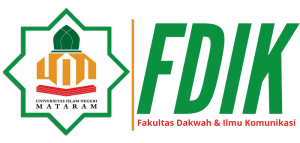About IDEA
Recent findings in human development research such as the McKinsey Global Institute (2023) have predicted that as many as many as 375 million professionals would have to acquire new skills by 2030 because of digital automation and artificial intelligence. There is, hence, a raising awareness human has to live in the midst of the fast and well adapted digital acceleration.
Whilst helping profession practitioners including Fakultas Dakwah graduates, have strived for planning for this typical fast-changing development, the well-accelerated social-religious transformation and professional learning still seem to be far-off to formulate newly adapted approaches and models.
Similarly, new interdisciplinary fields in Islamic studies have to take into account the dakwah and social transformation in a digital world. While scholars have investigated the subject of online religion for over 25 years (Campbell 2005; Helland 2005), debates on the discourses have largely remained concerned with questions pertaining to equality and equity to Dakwah for human development and social inclusion. Strengthening the digital capacity of societies, hence, needs to be promoted as a vital element of sustainable development.
Fakultas Dakwah and Ilmu Komunikasi (FDIK), Universitas Islam Negeri (UIN) Mataram is planning an international seminar to initiate to address the ways and extent to which participation in digital worship might be seen as fostering development and social inclusion. The seminar aims to broaden digital religion understanding beyond theological concerns towards more wholistic concerns of community dynamics and participation, intersecting with the digital divide in education and theology of inclusion.
Along with its role as a practitioner producer of human services in the field of Information Technology (Teknologi Informatika), Islamic Guidance Counseling (Bimbingan Konseling Islam), Community Development (Pengembangan Masyarakat Islam), Broadcasting Communication (Komunikasi Penyiaran Islam), Management of Da’wah (Manajemen Dakwah), FDIK UIN Mataram takes an initiative to tap fresh ideas, tools, and methods of typical people and digital skills and ethics to harness the opportunities and thrive in an era of digital religion and disruption.
The Call for Cross-Disciplinary Research Paper
The 3rd International Dakwah and Development Studies Seminar, FDIK UIN Mataram welcomes cross disciplinary research papers to address the ways and extent to which participation in digital religion and socio-educational movement might be seen as fostering or inhibiting social inclusion.
It encourages the cross disciplinary approach of related disciplines: inter and trans-disciplinary offering contribution to (1) Intrapersonal skills such as well-being, strengths perspectives, and indigenous/religious resilience; (2) Interpersonal skills such as literacy, active and lifelong learning, ideation of communication and community training/teaching; (3) digital and information literacy, automation and prediction.
Include university students in your research paper project and WIN a financial incentive for the three best papers!
Sub-Themes and Topics
The cross disciplinary approach in the submitted paper can focus on one of these sub themes but not limited to:
• Education in a Digital World,
• Theology of Inclusion and Disability,
• Basic Literacy in Digital Era,
• Development and Social Inclusion,
• Digital Inequity and Internet Divide,
• Digital Theology,
• Leadership and Professional learning;
• Implementation of Information Technology
